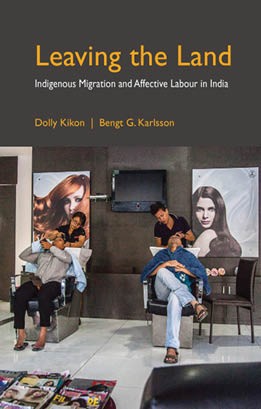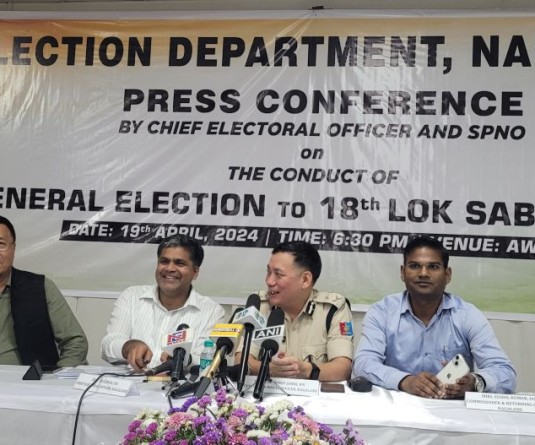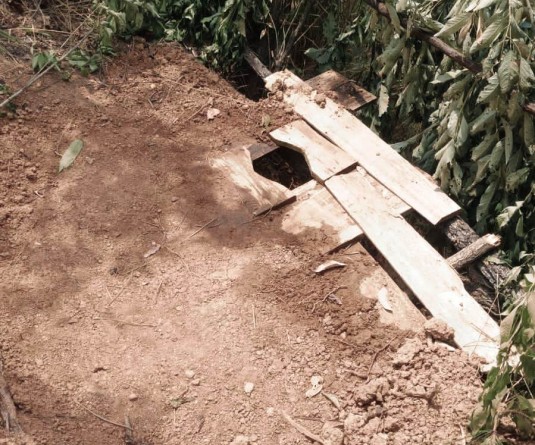
Leaving the Land: Indigenous Migration and Affective Labour in India
Morung Express News
Dimapur | May 20
On May 23, Dr. Dolly Kikon is set to release her second book this year, titled ‘Leaving the Land: Indigenous Migration and Affective Labour in India.’
To be available on Amazon from May 23, the book has been co-authored by Bengt G. Karlsson and published by the Cambridge University Press.
The book traces the migratory journeys of indigenous youth from Northeast India—to study and work—and engages with their new lives in cities like Bangalore, Mumbai, Hyderabad and Thiruvananthapuram.
“This migration is facilitated by new work opportunities in the hospitality sector, mainly as service personnel in luxury hotels, shopping malls, restaurants and airlines,” states a summary of the book, which is based on stories of individual migrants accompanied by a visual archive that is publicly accessible and includes a methodological chapter, written as a dialogue between the two authors.
Indigenous migrants of NE
Until recently, the journey of young indigenous migrants who travel across metropolitan cities in India, constantly looking for new employment possibilities and opportunities, was unthinkable. Indigenous mobility in the highlands of Northeast India was associated with jhum at best, and with violent ethnic conflicts at worst.
“The experiences of indigenous migrants we highlight in this book offer a new trajectory about citizenship, mobility, and indigenous experiences in contemporary India,” write the authors in a summary of the introduction to the book.
“By interrogating the myth of isolation, insularity, and remoteness that has defined Northeast India, we present the struggles, aspirations, and vulnerabilities of young indigenous migrants who constitute the underbelly of the service industry in global India today.”
The authors acknowledge that people from Northeast India have also earlier moved to the Indian mainland to work, for example, as civil servants in various government departments or as soldiers in the Indian army, but “the large-scale migration of young people we account for here is a different and novel phenomenon.”
The Afterword to the book by Duncan McDuie-Ra (Professor of Urban Sociology at the University of Newcastle, Australia) observes that Kikon and Karlsson “paint a picture of migrant life familiar to many young people who have left the Northeast over the years. Yet they also paint a picture of a region left behind that is fast becoming devoid of young people.”
He notes, “Many of those who remain are dreaming about leaving, and many of those who have returned are living with nostalgia for the life they lead outside the frontier.”
The “ruptures” created by these experiences, argues McDuie-Ra, “recalibrate notions of rights, entitlements, and the social and political order of different polities; and often the very constitution and boundaries of the polities in question.”
About the authors
Dolly Kikon teaches at the School of Social and Political Sciences, the University of Melbourne. Her research focuses on the political economy of extractive resources, development initiatives, gender relations, customary law, and human rights in Northeast India. Apart from publishing with various journals, she has also authored Life and Dignity: Testimonies of Sexual Violence in Dimapur (Nagaland) (2015).
Bengt G. Karlsson is Professor of Anthropology at Stockholms Universitet. He has been a committee member of the Swedish Research Council and is a working member of the Royal Swedish Academy of Letters, History and Antiquities. His research and work addresses the larger issues of society–environment interface, with particular focus on the politics of ethnicity and environment in India. Apart from publishing with various journals and contributing in edited volumes, he has also authored Unruly Hills: A political Ecology of India's Northeast (2011).





